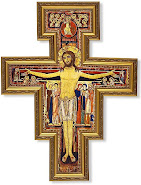
Turn on the TV and it is a matter of minutes before one is inundated with gratuitous sex and violence. Why is that? What is it with our infatuation with death and sex? And what do they have to do with each other? All around us we see death. However, true discussion on death is often avoided due to the fact that there are not many things that are more frightening or misunderstood. So the conversation gets suppressed. Sex is another topic that isn't usually discussed appropriately. Most conversations regarding sex are very uncomfortable and awkward unless it is the punchline of a joke or put in your face (literally) in the media. The problem is that when things are suppressed, they tend to resurface in ways that are not very healthy. In the beginning, man and his wife were both naked and they were not ashamed.(cf.Gen. 3:25) In the beginning, there was no death. Naked without shame and no death. What happened after "The Fall?" Death and shame both entered the world. The Theology of the Body addresses the connection with death and sex. It is worth quoting at length:
Thus, each man bears within him the mystery of his "beginning" closely bound up with awareness of the generative meaning of the body. Genesis 4:1-2 seems to be silent on the subject of the relationship between the generative and the nuptial meaning of the body. It will be necessary, then, to raise again the questions connected with the appearance of shame in man, shame of his masculinity and femininity, not experienced before. At this moment, however, this is in the background. In the foreground there remains, however, the fact that "Adam knew Eve his wife, and she conceived and bore . . . " This is precisely the threshold of man's history. It is his "beginning" on the earth. On this threshold man, as male and female, stands with the awareness of the generative meaning of his own body: masculinity conceals within it the meaning of fatherhood, and femininity that of motherhood. In the name of this meaning, Christ will one day give the categorical answer to the question that the Pharisees had asked him (Mt 19; Mk 10). We, on the other hand, penetrating the simple content of this answer, are trying at the same time to shed light on the context of that "beginning," to which Christ referred. The theology of the body has its roots in it.
7. Awareness of the meaning of the body and awareness of its generative meaning come into contact, in man, with awareness of death, the inevitable horizon of which they bear within them, so to speak. Yet there always returns in the history of man the "knowledge-generation" cycle, in which life struggles, ever anew, with the inexorable perspective of death, and always overcomes it. It is as if the reason for this refusal of life to surrender, which is manifested in "generation," were always the same "knowledge," with which man goes beyond the solitude of his own being, and, in fact, decides again to affirm this being in an "other." Both of them, man and woman, affirm it in the new man generated. In this affirmation, biblical "knowledge' seems to acquire an even greater dimension. It seems to take its place in that "vision" of God himself, with which there ends the first narrative of the creation of man about the "male" and the "female" made 'in the image of God": God saw everything that he had made and . . . it was very good (Gen 1:31). Man, in spite of all the experiences of his life, in spite of suffering, disappointment with himself, his sinfulness, and, finally, in spite of the inevitable prospect of death, always continues, however, to put "knowledge" at the "beginning" of "generation." In this way, he seems to participate in that first vision" of God himself: God the Creator "saw . . . , and behold, it was very good". And, ever anew, he confirms the truth of these words. (TOB 22:6,7)
Pope John Paul II is absolutely correct; life will always win. However in our culture, the value of a life is based on what it can produce or what it can provide. Individuals are looked upon as objects to be used and then discarded when they are no longer useful. We were not created to be objects to be used. We were created to commune with God and one another. This desire to "know" one another is stamped in our very being. The world calls it a "sex drive"; the Church Fathers called it "paternal desire."













